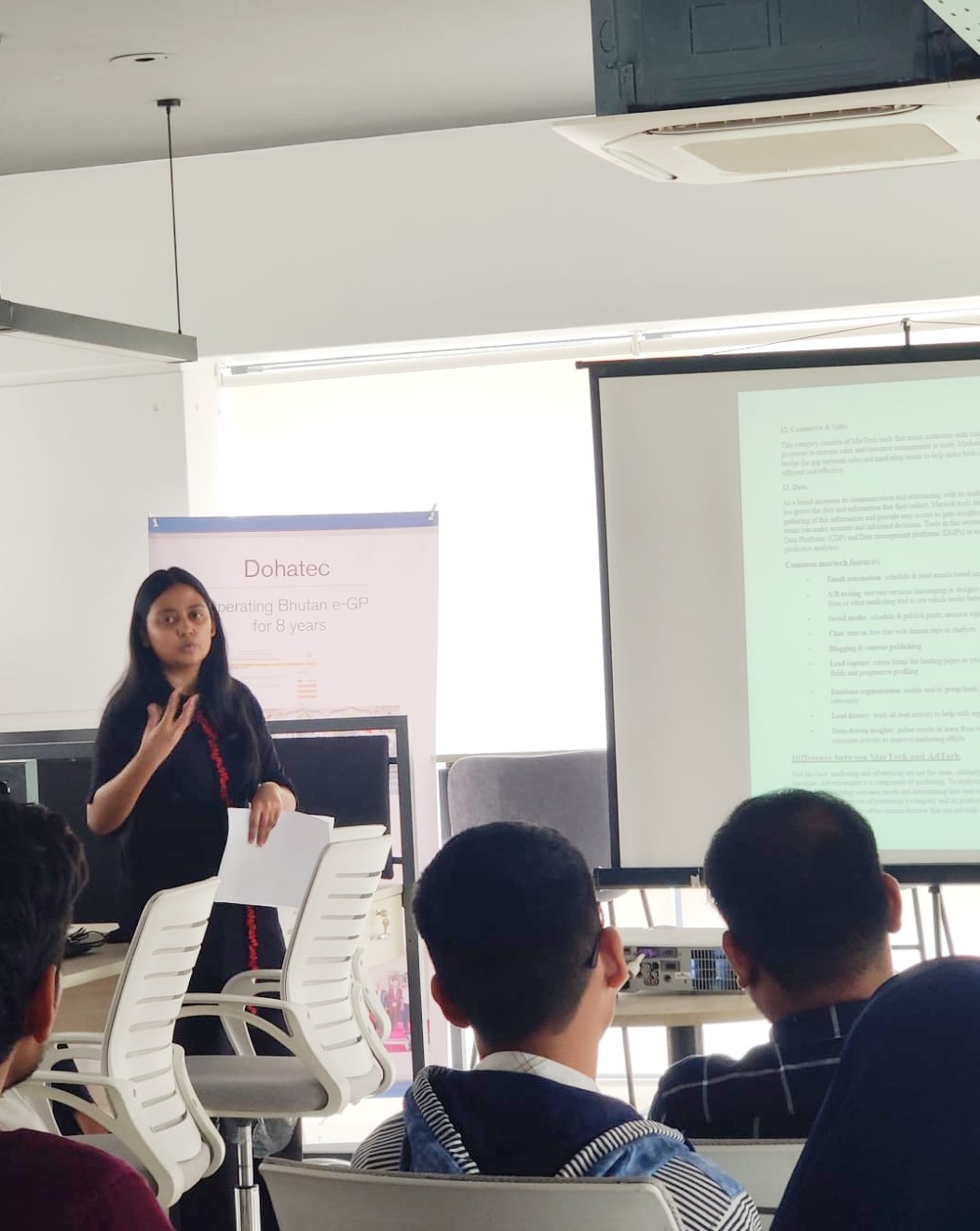Employee Onboarding on Marketing Technology
On March 29th, 2023, Faiza , Dohatec New Media, gave a presentation on MarTech to the employees of Dohatec at the Gulshan 2 office. The purpose of the talk was to familiarize the employees with of MarTech and to encourage them to explore the future prospects of Marketing technologies. Dohatec has necessary capacity in all aspects of marketing technology.
Marketing Technology, or MarTech, is the use of digital tools and platforms to automate, streamline, and optimize marketing operations. CRM systems, marketing automation software, content management systems, and data tools are all examples of MarTech tools and platforms.
There are several types of MarTech, including:
- Customer relationship management (CRM) systems
- Advertising technology (AdTech)
- Search engine optimization (SEO) software
- Marketing automation platforms i.e Email marketing, SMS marketing, Lead generation
- Content management systems (CMS), i.e. Content creation, Content management etc.
- Social media management tools
- Customer experience software
- Content Delivery Network (CDN)
- Analytics tools
- Data tools i.e. Customer data platforms (CDP), Data management platforms (DMPs) etc.
Data collection and analysis, automation, personalization, and optimization are all typical features of MarTech tools and platforms.
While the terms MarTech and AdTech are frequently used interchangeably, there are some significant distinctions between the two. AdTech is concerned with the delivery of advertising messages, whereas MarTech is concerned with a wider range of marketing activities, such as customer acquisition, retention, and engagement.
A MarTech stack is a collection of tools and platforms that a company utilizes to support its marketing activities. Building the right MarTech stack necessitates careful consideration of the company’s marketing goals, budget, and resources, as well as an assessment of MarTech suppliers and tools. An optimal martech stack should include the following four major overarching categories: a) Marketing Automation Platforms (MAP) b) Content Management Systems (CMS) c) Customer Relationship Management (CRM) d) Digital Asset Management (DAM)
Some basic MarTech strategies include building a martech stack from the top down, beginning with the company’s general marketing strategy and objectives.
Alternatively, carefully consider all existing data sources that should be integrated to accomplish your martech goals, and ensure that the solutions you choose are compatible with those sources.
Or, to thoroughly consider all of the marketing and communication channels that you require now as well as those that you anticipate using in the near future. Only by coordinating all platforms – email, SMS, on-site/in-app, online advertising, social media, call center, and so on – will your martech stack allow you to optimize the total customer experience.
MarTech benefits include increased efficiency, better targeting, and a better customer experience; however, challenges include complexity, integration, and expense.
Current MarTech trends include the use of artificial intelligence (AI), account-based marketing (ABM), and customer data platforms (CDPs), with ongoing innovation and growth expected in the future.
Finally, MarTech is a rapidly evolving field that is critical to contemporary marketing strategies. Businesses can improve efficiency, improve customer experience, and accomplish marketing objectives more effectively by leveraging the right MarTech tools and platforms.
